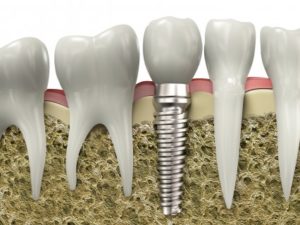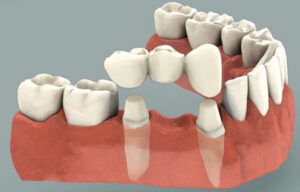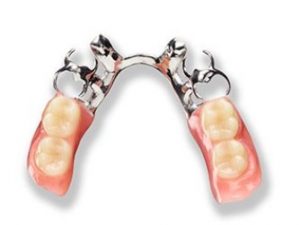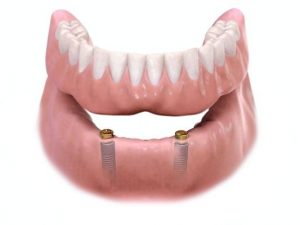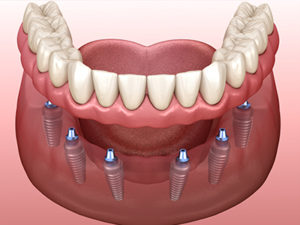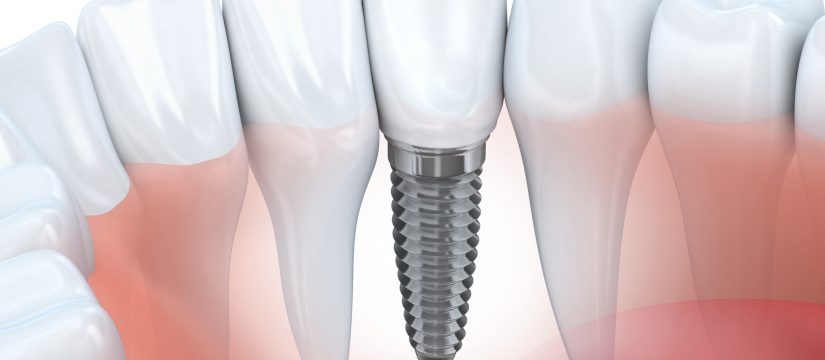
Navigating teeth replacement can be daunting. Whether it’s dental implants, fixed bridges, or dentures, this article cuts through the complexity to help you choose the best fit for a functional, aesthetically pleasing smile within your budget.
Key Takeaways
- An array of tooth replacement options exists such as dental implants, fixed bridges, removable partial dentures, implant-supported dentures, and full-arch dental implants, each with unique benefits and suitable for different needs, financial considerations, and oral health conditions.
- Important factors to consider when selecting a tooth replacement include budget and affordability, oral health conditions, and the aesthetics and functionality of the replacement option, as well as the maintenance required and the long-term durability of the solution.
- Preparation for a tooth replacement procedure involves an initial consultation to review oral health, followed by creating a treatment plan and scheduling follow-up visits to ensure successful outcomes, and is supported by good oral hygiene practices, a balanced diet, and a healthy lifestyle to prevent future tooth loss.
Understanding Your Teeth Replacement Options
Setting out to replace missing teeth can be an exciting venture. However, comprehending the range of tooth replacement options available to you is key when it comes to replacing missing teeth. Each choice comes with unique benefits, and the selection of the best fit relies on several factors, such as your specific needs, oral health condition, and financial plan.
Without professional advice, making the best decision can pose a challenge. This complexity underscores the importance of consulting with a dental professional, especially when considering dental implants in Rockville. They can guide you in scrutinizing your options, comprehending the advantages and drawbacks of each, and making a well-informed decision tailored to your unique circumstances.
Dental Implants
If you’re seeking a reliable, long-lasting solution that closely resembles your natural teeth, dental implants could be the answer. These are designed to:
- Look and feel like real teeth
- Function like real teeth, providing a comfortable fit
- Give you the confidence you need when eating, speaking, or engaging in social activities.
The dental implant placement process entails a comprehensive examination, setting the metal screw implant, a recovery period, followed by securing a dental crown. Made of titanium and other body-friendly materials, dental implants have a success rate comparable to or better than other teeth replacement options. They improve your oral health by preserving natural tooth tissue, restoring jawbone structure, and reducing bone loss.
Fixed Bridges
Fixed bridges are another tooth replacement option to consider. They work by attaching permanent crowns to the teeth around an empty space, filling the gap where teeth have been lost. Dental bridges can be made from various materials, including:
- Porcelain
- Gold
- Alloys
- A combination of these
Obtaining a dental bridge entails preparation of abutment teeth, capturing impressions, and fabricating a model. This quick restoration method not only improves the aesthetic appearance of your smile but also aids in essential functions like chewing and speaking, and helps maintain your facial shape.
In addition, fixed bridges prevent jawbone deterioration and keep your natural teeth from moving out of alignment.
Removable Partial Dentures
If you have a few missing teeth and are looking for an affordable solution, removable partial dentures (RPDs) might be the right fit for you. RPDs can easily be taken out of the mouth for cleaning in just a few seconds, offering a less invasive option compared to other tooth replacement methods, such as replacement teeth.
RPDs often have clasps that attach to natural teeth, and their fit may change over time due to aging and mouth changes, possibly requiring crowns for better fit or a new partial if an abutment tooth is lost. While there is an adjustment period to wearing RPDs, they should be removed at night to relieve the teeth and tissues and to prevent discomfort due to conditions like dry mouth.
Implant-Supported Dentures
Implant-supported dentures provide a more secure and comfortable alternative to traditional dentures. These dentures improve stability for chewing, eating, and speaking, as they are firmly anchored to the jawbone. Unlike traditional dentures that can shift or slip, implant-supported dentures remain in place without wobbling, significantly enhancing their functionality.
Patients can choose between fixed implant-supported dentures, which are permanently attached and only removable by a dentist, and removable ones that snap onto dental implants for easy daily cleaning. The All-on-4® procedure is an example of a method for installing fixed implant dentures, which supports a full arch of teeth with only four dental implants.
Full-Arch Dental Implants
Full-arch dental implants offer a comprehensive teeth replacement solution. Also known as Permanent Hybrid, All On 4’s, or All On X’s, these consist of a full bridge attached to 4-6 implants per jaw. This method preserves bone and muscle tone while closely resembling natural teeth in aesthetics and function.
The procedure for full-arch dental implants involves:
- Extraction of all remaining teeth in an arch
- Placement of implants
- Attachment of a ‘Long Term Provisional’ (LTP) appliance
- Replacement with the Permanent Hybrid after 4-6 months
This means you can have a full set of teeth in just one day, and it’s a great way to replace a single tooth or multiple missing teeth with minimal bulkiness.
Factors to Consider When Choosing a Teeth Replacement Method
Selecting a tooth replacement method is a significant decision. Multiple factors, including:
- budget
- oral health condition
- aesthetics
- functionality
- upkeep
- durability
should inform your choice. After all, tooth replacement extends beyond aesthetics to restore functionality and enhance oral health.
In this decision-making process, professional advice is priceless. A dental professional can guide you through these factors, ensuring your choice of a tooth replacement method suits your needs, aligns with your lifestyle, and constitutes a beneficial investment in your oral health.
Budget and Affordability
Budget and affordability play a significant role in your tooth replacement journey. The costs can vary widely across different options, from less invasive and more affordable options like removable partial dentures to more expensive solutions like dental implants, especially when multiple teeth need replacement or for complex dental restorations.
However, cost shouldn’t be the only deciding factor. Remember, it’s an investment in your oral health and quality of life. Therefore, you should consider the long-term benefits and durability of the option you choose. For example, while the initial cost of dental implants may be higher, they can be cost-effective in the long run due to their durability and minimal maintenance costs.
Oral Health Condition
Your oral health condition can greatly influence your tooth replacement options. After all, a healthy mouth is the foundation for any successful dental procedure. Factors such as:
- existing oral diseases
- gum health
- bone density
- overall oral hygiene
Proper dental care and regular check-ups play a significant role in determining the success of the chosen tooth replacement method. Once the dentist has completed the necessary evaluations, you will receive a “verification successful waiting” notification, indicating that your tooth replacement procedure is ready to proceed.
For instance, conditions like gum disease or tooth decay may need to be addressed before proceeding with tooth replacement. Also, your dentist will assess the health of your existing teeth and jawbone to ensure they can support the chosen replacement method. Therefore, maintaining good oral health is crucial in expanding your tooth replacement options and ensuring their success.
Aesthetics and Functionality
Aesthetics and functionality are important considerations when choosing a tooth replacement method. After all, the primary goal of tooth replacement is to restore the look and function of your natural teeth. From speaking and eating to smiling and laughing, your teeth play a pivotal role in your everyday life.
Dental implants, for instance, are designed to look, feel, and function like natural teeth, bringing comfort and confidence in social activities. Likewise, other options like fixed bridges and removable dentures aim to restore the natural aesthetics and functionality of your teeth. Therefore, considering how closely the tooth replacement option will resemble and function like your natural teeth is crucial in your decision-making process.
Maintenance and Durability
Maintenance and durability are other critical factors when deciding on a tooth replacement method. Some options require more care and attention than others. For instance, removable dentures need regular cleaning and care, while dental implants require minimal maintenance.
However, with proper care, dental implants can last a lifetime and have predictable, long-term outcomes. This durability makes them a worthwhile investment for many patients. On the other hand, options like removable dentures may require periodic adjustments or replacements. Therefore, understanding the maintenance requirements and durability of your chosen tooth replacement method is essential in ensuring its longevity and your satisfaction.
Preparing for Your Teeth Replacement Procedure
Once you’ve chosen a tooth replacement method, it’s time to prepare for the procedure. This process typically involves an initial consultation, a personalized treatment plan, and follow-up visits to ensure successful outcomes.
In the initial consultation, your dental professional will evaluate your oral health and explore your treatment options. Upon selection of a method, they’ll design a personalized treatment plan tailored to your specific needs. Lastly, they’ll arrange follow-up visits to track your progress and resolve any possible issues.
Initial Consultation
The initial consultation sets the foundation for your tooth replacement journey. It’s an opportunity to meet your dental team, learn about your treatment options, and express any concerns or questions you may have.
During this meeting, your dentist will review your medical records, conduct oral examinations, and discuss your oral health needs, goals, and specific concerns. This comprehensive assessment allows your dentist to provide personalized advice and guide you towards the most suitable tooth replacement method. Remember, it’s essential to ask questions and address your concerns during this consultation to ensure confidence in your decision and trust in the expertise of your dental practitioner.
Treatment Plan
Once the initial consultation is done, the next step is the creation of a personalized treatment plan. This plan includes:
- The chosen tooth replacement method
- The estimated treatment duration
- Necessary appointments
- Options for sedation
Your treatment plan is tailored to your unique needs based on your oral health condition, desired outcome, and personal preferences. It serves as a roadmap to your tooth replacement journey, providing detailed steps and expectations, ensuring you are adequately prepared and informed at every stage.
Follow-Up Visits
Follow-up visits are an integral part of your tooth replacement journey. These visits allow your dentist to monitor your progress, evaluate the healing process, and ensure the proper functioning of your new tooth or teeth.
During these visits, you’ll also have the opportunity to report any discomfort or concerns you may have. Your dentist will provide expert advice on how to take care of your new teeth and ensure their longevity. Remember, maintaining your new teeth is just as important as the procedure itself, so these visits are crucial to the success of your tooth replacement.
Preventing Future Tooth Loss
While tooth replacement options offer solutions to missing teeth, including a missing tooth, preventing future tooth loss should always be a priority. Good oral hygiene practices, a balanced diet, and a healthy lifestyle can go a long way in preserving your natural teeth.
Remember, your teeth play a vital role in your overall health and well-being. Therefore, taking proactive steps to maintain your oral health can prevent future tooth loss and ensure a lifetime of healthy smiles.
Proper Oral Hygiene
Proper oral hygiene is the first line of defense against tooth loss. Regular brushing with fluoride toothpaste, daily flossing, and using mouthwash are essential practices for maintaining oral health and preventing tooth decay and gum disease.
Additionally, regular dental check-ups are crucial for early detection and treatment of oral health issues that can lead to tooth loss. For those with tooth replacements, special oral care might be necessary to prevent plaque build-up and ensure the longevity of the replacements.
Even if you have no natural teeth or wear dentures, you still need to take care of your mouth.
Diet and Nutrition
Diet and nutrition significantly contribute to maintaining oral health and avoiding tooth loss. A balanced diet teeming with fresh vegetables, fruits, and whole grains, and low on added sugars and fats, can aid in warding off oral conditions that result in tooth loss.
Limiting sugar consumption, incorporating saliva-stimulating foods into your diet, and eating sugary foods with meals rather than between meals, can reduce the risk of tooth decay. Remember, a healthy diet is not only good for your body but also beneficial for your teeth and gums.
Lifestyle Factors
Lifestyle factors that can safeguard your oral health and ward off tooth loss include:
- Steering clear of tobacco use
- Moderating alcohol intake
- Managing stress
- Sustaining physical fitness
Remember, your oral health is a mirror to your overall health. Therefore, adopting a healthy lifestyle not only improves your general health but also preserves your oral health, preventing tooth loss, and ensuring a lifetime of healthy smiles.
Summary
In conclusion, tooth loss is not an end but a new beginning. With a wide range of tooth replacement options available today, you can restore the function, aesthetics, and confidence that come with a complete set of teeth. However, choosing the right tooth replacement method requires careful consideration of several factors, including your oral health condition, budget, aesthetics, functionality, and maintenance needs.
Remember, maintaining your oral health is just as important as replacing missing teeth. Thus, adopting proper oral hygiene practices, a balanced diet, and a healthy lifestyle are key to preventing future tooth loss and preserving your beautiful smile. After all, a healthy smile is not just about aesthetics; it’s a reflection of your overall well-being.
Frequently Asked Questions
Can a single tooth be replaced?
Yes, a single tooth can be replaced with a dental implant and a crown, which provides a reliable and permanent solution that looks and feels like a real tooth.
Why is replacing teeth so expensive?
Replacing teeth is expensive due to the high cost of titanium implants, technical equipment, precious and semi-precious metals in prostheses, and the artistic application of porcelain, making the entire process costly and technically intricate.
How much does it cost to get a new tooth?
Getting a new tooth can cost between $3,000 and $4,500 on average, with a full mouth replacement potentially reaching at least $60,000. Dental implants are considered a lifetime investment due to their corresponding pricing.
What is the best option for replacing teeth?
Dental implants are the best option for replacing teeth as they are anchored in the jaw bone, preserving bone and improving chewing and speech. They offer a long-term solution for tooth replacement.
Are dental implants a good option for replacing missing teeth?
Yes, dental implants are a reliable and long-lasting tooth replacement option that closely resemble natural teeth in both appearance and function.

